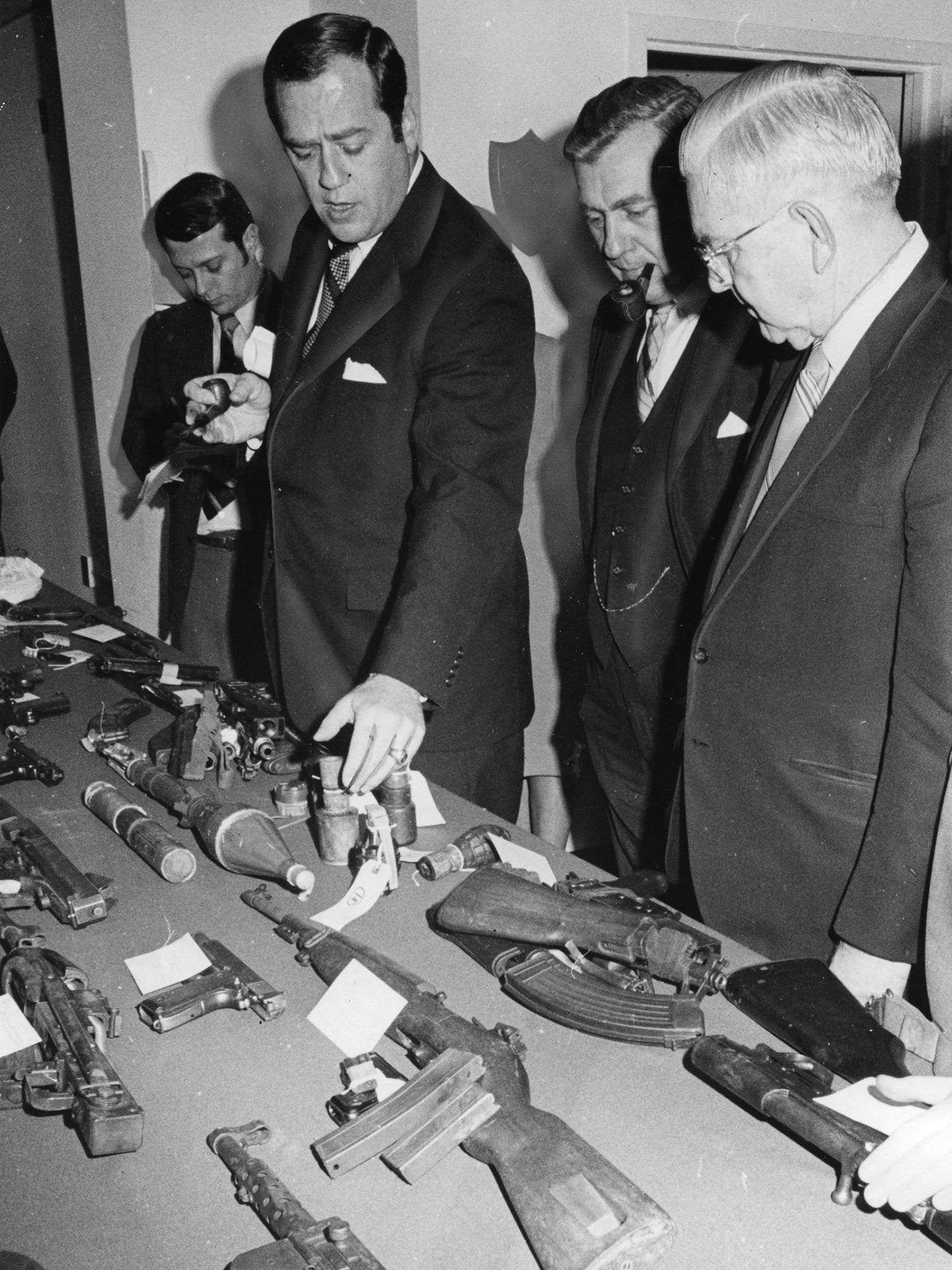Myles Ambrose: US Customs commissioner who became Nixon’s front man in the war on drugs and helped set up the DEA

Your support helps us to tell the story
From reproductive rights to climate change to Big Tech, The Independent is on the ground when the story is developing. Whether it's investigating the financials of Elon Musk's pro-Trump PAC or producing our latest documentary, 'The A Word', which shines a light on the American women fighting for reproductive rights, we know how important it is to parse out the facts from the messaging.
At such a critical moment in US history, we need reporters on the ground. Your donation allows us to keep sending journalists to speak to both sides of the story.
The Independent is trusted by Americans across the entire political spectrum. And unlike many other quality news outlets, we choose not to lock Americans out of our reporting and analysis with paywalls. We believe quality journalism should be available to everyone, paid for by those who can afford it.
Your support makes all the difference.Myles Ambrose was a former commissioner of the US Customs Bureau who was named as the federal government’s drug czar during the Nixon administration and who helped organise the Drug Enforcement Administration
When Ambrose was named commissioner of the old US Customs Bureau in 1969, he became one of the government’s most prominent leaders in what was beginning to be called the war on drugs. He expanded the profile of the bureau and added thousands of employees and millions of dollars to its budget.
He reorganised its investigative arm to fight drug smugglers and established fleets of helicopters, airplanes and speedboats. The bureau began to use sniffer dogs to detect shipments of marijuana and heroin. He hired some of the government’s first female law enforcement officers for the bureau and helped set up methadone-treatment programmes.
He launched Operation Intercept, a controversial programme in which federal agents searched cars for drugs as they entered the US at the Mexican border. The hold-ups lasted for hours. The operation was discontinued after a few weeks because of fraying relations between the two countries. But the point was made, and Mexican law enforcement agencies increased their efforts to stop drug shipments.
The rate of drug seizures increased dramatically under Ambrose, including three cases in which more than 200lb of pure heroin were intercepted in 1971 alone. The next year, President Richard Nixon declared drug abuse the country’s “No 1 domestic problem” and chose Ambrose to solve it.
The new Office of Drug Abuse Law Enforcement, sometimes called ODALE, was operated out of the White House under the auspices of the Justice Department. As he pulled his office together he fought turf battles with other agencies until Nixon asked him to consolidate them into the Drug Enforcement Administration.
In July 1973, just as Ambrose was about to become the first DEA director, he abruptly resigned. His family said he went into private law practice to support his six children, but he also faced scrutiny for staying at the home of a Texas rancher who was later indicted for trading weapons for drugs; there was no evidence Ambrose was aware of any wrongdoing.
Defending the sometimes rough tactics of drugs officers, Ambrose said, “This is dirty scummy work. You see these vermin selling drugs and what they do to people and our cities, and you get sickened and angry and perhaps you take your hostilities and frustrations out on some guy’s bookcase. It’s not right. But how are you going to prevent it?”
MATT SCHUDEL
Myles Ambrose, US government official: born New York 21 July 1926; died Leesburg, Virginia 3 June 2014.
© The Washington Post
Join our commenting forum
Join thought-provoking conversations, follow other Independent readers and see their replies
Comments